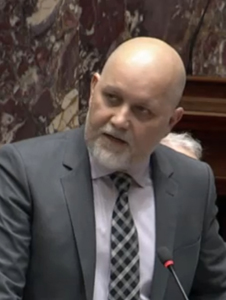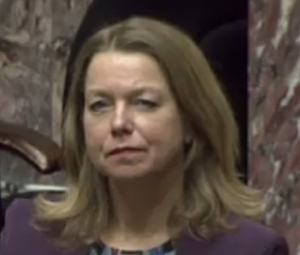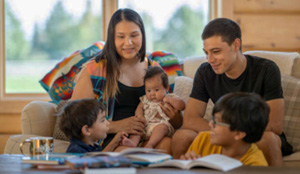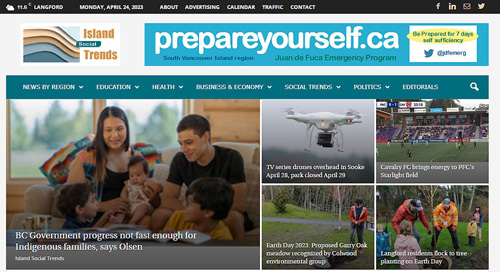Monday April 24, 2023 | VICTORIA, BC
by Mary P Brooke | Island Social Trends
“Even as this institution changes and evolves in many wonderful ways, in fact, it’s important that we’re honest and we acknowledge the many awful ways that it’s not evolving and changing quickly enough,” said BC Green MLA Adam Olsen today.
He was referring to the “ongoing suffering that the Ministry of Children of Family Development continues to cause our families”, those being Indigenous families. This was a comment in the context of the shilshalh Nation finding 40 unmarked graves on or near the site of the former St. Augustine’s Residential School near Sechelt on the Sunshine Coast.

He specifically mentioned that the system is still “separating mothers from children”, families and fathers.
Olsen itemized the “drug poisoning crisis” and a report last week where 16.4 percent of the deaths of people that died from drug poisoning were Indigenous people. He noted that 3.3 percent of the population is Indigenous.
He made the link between the distress of Indigenous families and the use of substances, as a response to trauma.
Trauma recovery can take time, even generations, as it cycles through a family.
Island Social Trends has asked the Ministry of Children and Family Development for a response to Olsen’s overarching claim that MCFD is not doing enough.
Statement from Ministry of Children and Family Development (April 25, 2023)
“For too long, the child welfare system has failed Indigenous children and families. That needs to change, and we are doing the work to make sure it does.
“The ministry’s priority is to keep children and youth living at home close to family, community and culture. More children than ever before are staying connected to their families, communities, and cultures in Out-of-Care arrangements with extended family or friends. These living arrangements allow children and youth to remain connected to their larger family network and avoid placement in foster care. In fact, we are seeing the lowest overall number of children and youth in care in 30 years and the lowest number of Indigenous children and youth in care in over 20 years.

“In 2022, B.C. passed legislation to become the first jurisdiction in Canada to respect and uphold the inherent rights of Indigenous communities to provide their own child and family services. These changes recognize Indigenous Peoples’ inherent right of self-government specifically in provincial legislation, which will help keep Indigenous children and youth safely connected to their families, cultures and communities.
“In Budget 2019, government increased maintenance rates for foster caregivers, and also increased support by harmonizing maintenance rates for kinship/out of care caregivers to be at the same rate as foster caregivers. In Budget 2023, the maintenance rates for foster and kinship/out of care caregivers increased by up to 47%. This means extended family members caring for children who cannot reside with their parents are supported in the same way foster care givers are supported.
“In addition, a new Indigenous Child Welfare Director (ICWD) position will be created in the ministry, something long requested by Indigenous partners. Details of the role will be determined in consultation and cooperation with Indigenous Peoples in B.C. The ICWD will provide advice and guidance on child welfare services and critical decisions related to Indigenous children in B.C., in addition to their responsibility to support the harmonization of Indigenous and provincial laws.
“We have been working with Indigenous-Rights Holders, Modern Treaty Nations, Indigenous partners, Métis and Inuit partners and Indigenous Child and Family Service Agencies to reduce the overrepresentation of Indigenous children and youth in government care and we have been making significant progress but recognize that there is still much work to do.”




